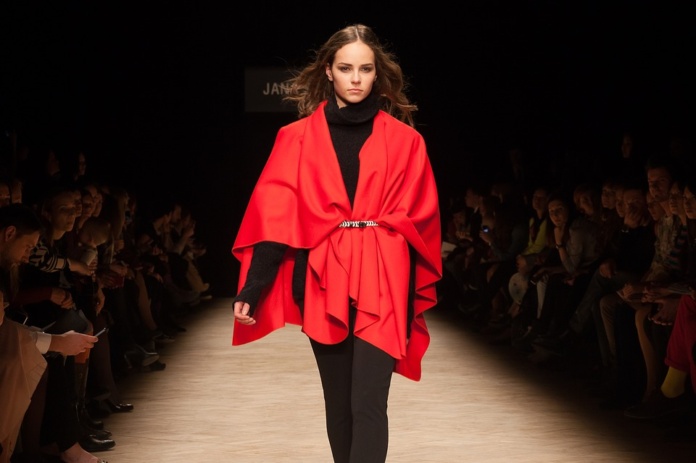Psychology of Self: Dress to Impress
You probably remember your mom telling you “you are what you eat” at some point during childhood. Have you ever thought you might be what you wear as well? Fashion is self-expression, we all accept this very generalized statement as true, but now the emerging field of fashion psychology delves deeper into the idea of what fashion means for each individual.
In an online survey, most University of Utah students see their clothing as an expression of self. Now, this doesn’t mean they didn’t wear comfy clothes or jeans to class their freshman year. Your self might be a star wars t-shirt, which is entirely acceptable and totally awesome in my personal opinion. However there is a trend of students dressing more business casual as they get further along in their college career. Whether they major in Theater, Business or Education sooner or later we all seem to find ourselves needing to look nice.
Along with looking nice, we all seem to be more confident in fancier clothes as well. There is an actual science to this feeling of confidence described by U student Maureen Degen: “When I am able to plan ahead and wear something nicer, it makes me feel like I have my life a bit more together.” The study of how we associate fashion is fashion psychology.
F-Psy is a new and emerging field, but it is tackling some big issues. Dr. Carolyn Mair finished school with a BSc in applied psychology and computing. She became a graphic designer and designs clothes on the side. Not long after graduation she found herself back in school getting successive degrees, a MSc in Research Methods and a PhD in Cognitive Neuroscience. She then used these degrees to change the fashion world forever. She developed a program for graduates to earn a MSc of applied psychology in fashion which graduated its first class in 2015. Dr. Mair believes in the power of f-psy to help our culture rewrite mass produced ideas of beauty and confidence. In an interview with careers in psychology she said, “Since the 60s, the fashion industry has promoted an increasingly very narrow stereotype of ‘beauty’ which has now become the ‘norm’ through the ubiquity of web and mobile technology. With the increase in exposure to such images, comes an increase in appearance and body dissatisfaction across the lifespan which can be addressed by psychologists.”
Another fashion psychologist also defines f-psy in relation to cultural norms. Dawnn Karen holds an MA in Counseling Psychology from Columbia. If that wasn’t impressive enough she is also a model, author, the youngest professor at the Fashion Institute of Technology in New York and has founded her own online school of fashion psychology.
Karen defines f-psy as “the study of how color, fashion and shape effects human behavior, while adjusting for cultural norms and cultural sensitivities.” This definition came about after extensive travel and research across the world leading her to interact with multiple different cultures and their ideas of fashion and self.
How does this all apply to the U? Well, people like Dr. Mair and Dawnn Karen became interested in this field because of the importance of fashion in their lives. Nearly all of the students I surveyed said they spend upwards of $100 a year on clothes. In fact most of them didn’t think that was a lot of money. This equates to ten of those fancy $10 cocktails at bars like Twist and Bourbon House. It’s a months worth of food or a sixth of your books for the semester. $100 pays for a couple dates, several miles in gas — maybe even a trip home. When you make minimum wage here in Utah you have to work around 14 hours to make $100, assuming you don’t have other expenses to pay first. Your clothes cost a lot and yet we as a society put time and money into picking out and buying clothes. Then we inevitably go to our closets and say “I have nothing to wear.”
Fashion psychology studies the moment we can’t choose what to wear or we splurge on a beautiful dress we can’t afford to buy. If fashion psychology isn’t real, why does retail therapy work? Our relationship to clothes affects our emotional equilibrium. U student Garrett Matlock said “I feel more confident and vibrant.” Then this phenomenon takes a step further into first impression and an external response we see when dress well. Alumna Savannah Maez feels “if I look professional people will treat me that way,” and current U student Paul Raine said “First impressions are important, and the first thing people see is how you dress.” Our clothing is more than expression — it is interaction, identification and owning our emotional state. I have certainly had bad days where I wanted to wear nothing but pj’s and good days when I dressed to impress. I have also had angry days where I wore all black and red lipstick and I know I am not alone.
As you head into another year of school or perhaps a new year think about the clothes you wear and what you are expressing. Your nerdy t-shirt might be the key to a new friendship and the sharp blazer hanging in your closet might just help you land that internship. Whatever you are dressing in, make it you.
